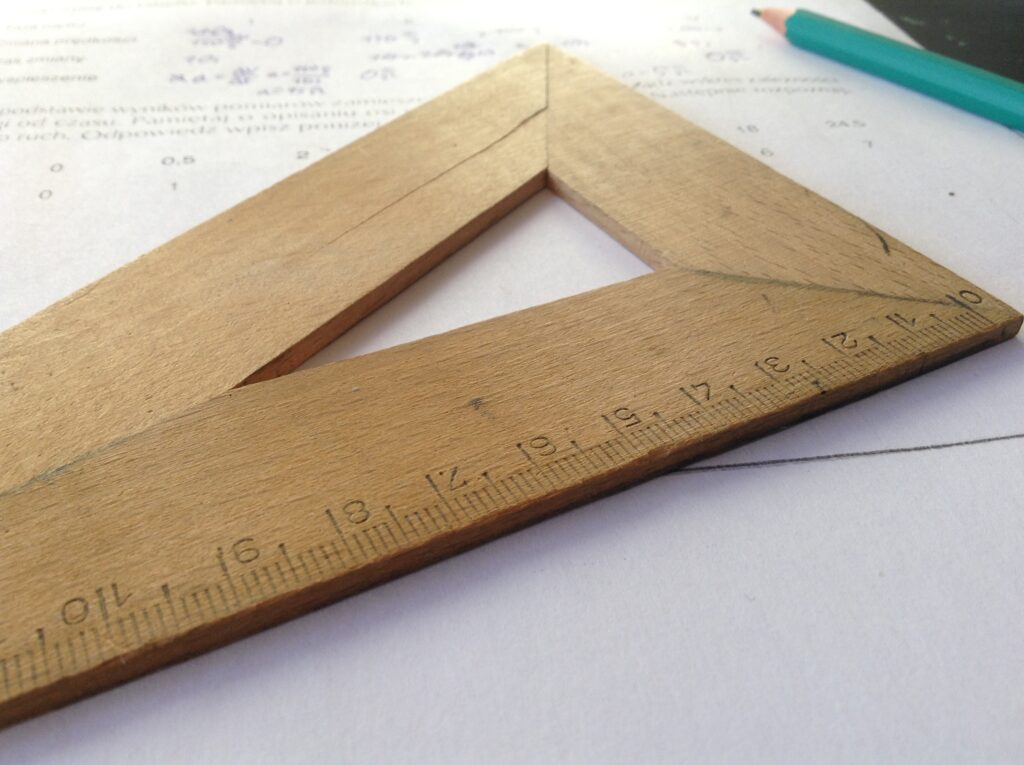I am used to having parents tell me that they think their kid is behind, missed something in 3rd grade, or has a suspected learning disability. That dialogue is almost always the first thing parents say when they are outlining why they need help from a math tutor. For some students, however, they do not need to be held back or to see a doctor. What they need is to move ahead and go on to the next step.
I think parents feel they have to justify their kid’s need for a tutor as something bigger than simply “We need help.” Forgetting that teaching math is a lot like picking up a really heavy object, and sometimes there’s no other reason for needing help than it’s heavy. Such was the case yesterday, when I met with a student whose problem was that she needed to move forward in her studies and not that she had missed something in previous coursework.
As her mom began telling me about how they were going to seek out testing for potential learning disabilities, I realized that the signs of a learning disability were not strong, so perhaps that was not the issue. To investigate further, I asked the Mom to describe to me some of the reasons she felt her daughter might have a learning disability. Were her issues over all subjects? No, just math. Did she have trouble reading? No, she just forgets to write down parts of the problem. “How do you mean?”, I asked.
The mom went on to explain that her daughter had just completed 7th grade math and was about to start 8th grade math, but was still doing problems with long division. She knew how to do the problems, so when she was writing them out she would setup the problem correctly, then skip numbers, seemingly at random, inside the problem itself so that the answer she produced was not correct. Her mother thought maybe she was skipping numbers due to a learning disability.
I am not an expert on learning disabilities, so I told her to let me know how the testing went and inform me if we needed to be doing lessons differently during sessions to accommodate any learning challenge her daughter might be facing. However, if I were to evaluate the situation myself it seemed like her daughter was impatient.
So I offered this explanation, “It sounds like your daughter knows what she is doing and she is impatient to solve the problem, so while she is working it she unconsciously skips over numbers because she isn’t paying attention to them. She just wants to get done, is not having to ask herself mentally what to do next, so she is blazing through it and missing the numbers. She’s not making a conscious choice to leave it out, she’s just beyond this level of math in her head and having to force herself to do it on paper anyway because that’s today’s assignment.”
The mom just stared at me a moment then said, “How did you know? That’s what she has been telling me!”
The daughter laughed and said, “I like her.”
It’s funny, but so true. Many times parents assume their kids have learning disabilities whether they actually do or they just need a new approach to their lessons. In this girl’s case, she needed to move ahead to Algebra 1. Turns out, mom had delayed letting her daughter use a calculator and was asking her daughter to work all of her math (7th and 8th grade level) mentally. It was exhausting for the student and she wasn’t learning anything because she was wasting all her brain power on trying to do elementary level math problems which she already knew, so it was redundant and cumbersome.
When your student reaches 7th grade, please introduce a calculator to them. Let them use a standard scientific calculator to solve elementary steps like multiplication and division. They are learning larger, more complicated problems that are not simply “more than one multiplication problem” If they are in a grade level appropriate course, they are being asked to think logically, to apply math to real life situations and to solve things like formulas, apply concepts like theorems and they need a good tool like a good scientific calculator to help them move forward. Remember that the problems your students are doing in Algebra and beyond are harder than a household budget and since most of us adults use calculators to calculate the grocery bill, we can understand how students doing problems harder than that would need a calculator to help the process.
Do not hold your student back just because they solve their multiplication tables slower than lighting speed. Forget whether or not they took timed tests well. Those things are horrendous and not a good judge of a student’s understanding in the slightest. If your student learned multiplication and division, let them move on from that lesson. There is no need whatsoever to require that they be able to endlessly recite multiplication tables all the way to graduation. Let me repeat that: Stop making your high schooler recite multiplication tables, they are beyond that now. You wouldn’t make your middle school student prove to you they can walk at regular intervals throughout their year of soccer practice just to be sure they remembered it, right? Similarly, as you are asking a student to grow progressively in their math education, it’s detrimental to their progress to constantly have them go back several years of curriculum and regurgitate material just to prove they “really” learned it.
Most grown adults cannot recite their multiplication tables, that does not make them uneducated and it won’t make your kid’s uneducated either. Learning is progressive. Don’t hold them back because they aren’t perfect. Perfect is never the goal.
So when you run into situations where your kid is having to struggle with math, take heart. That means you are in the right place. Before you assume they have a learning disabiltiy, assume that you have moved beyond elementary math and that it’s no longer “elementary” to teach or work this level of math. You may need help. From a teacher, a tutor, or simply from some supplemental work added in like an online course, an active email support group, or activities and projects that can help your student contextualize what they are learning. A good analogy goes a long way. Whatever resource you choose, you’re not dealing in elementary math anymore and it’s ok to get help when you need it.
Food For Thought:
“Nine tenths of education is encouragement.” – Anatole France
What are some ways you’ve seen encouragement and support help your student overcome learning obstacles?
Share your ideas in the comments below!









